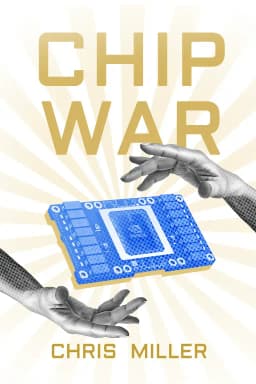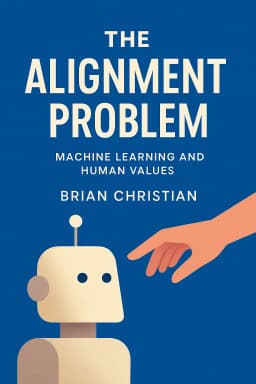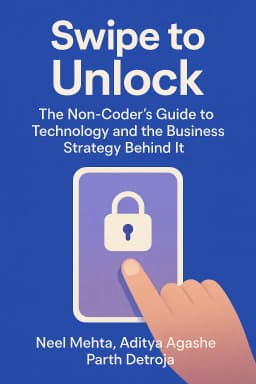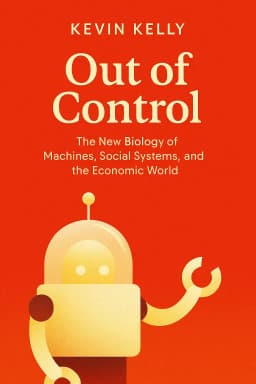
The Last Normal Humans?
Golden Hook & Introduction
SECTION
Joe: The first person who will live to be 150 has already been born. That's not a sci-fi movie tagline; it's a very real prediction from scientists. It forces you to ask a wild question: are we the last generation of 'normal' humans? Lewis: Wait, seriously? 150? That sounds like something out of a movie. I can barely make it through a Monday without three coffees. The idea of living that long is both amazing and exhausting. What does that even mean for us? Joe: It means everything is on the table. And it’s the central question in this incredible book we’re talking about today, Where Will Man Take Us? by Atul Jalan. And what's fascinating is that Jalan isn't just a philosopher; he's a hardcore technologist and CEO, but also a poet. That mix really comes through in the writing. Lewis: A technologist and a poet. That explains why the book is so highly rated but also described as pretty dense. It’s tackling the biggest questions with both a scientific and a humanistic lens. Joe: Exactly. He argues we're at a turning point more significant than any before. It's not just about living longer; it's about a fundamental shift in how we, as a species, evolve. He calls it the great handover. Lewis: The great handover? What are we handing over, and to whom?
The Great Handover: From Natural to Artificial Selection
SECTION
Joe: We're handing over the reins of evolution... from nature, to ourselves. To illustrate this, Jalan tells a brilliant story. Picture the world 400 million years ago. Life is confined to the sea. But there's this one fish, let's call her Wanda. Over generations, her species developed these weird little fin-feet. No one knew why. Then one day, for reasons we'll never know, Wanda decides to crawl out of the water and onto dry land. Lewis: That’s a massive leap of faith for a fish. The entire world she knew was water. Joe: A world-changing leap. And Jalan pairs that with the story of Lucy, the hominid from 3.2 million years ago. The forests were shrinking, grasslands expanding. She made a choice: to stop swinging from trees and start walking upright. A choice that, as it turns out, was 75% more energy-efficient than how chimps walk. Lewis: Okay, so you have Wanda crawling out of the sea and Lucy climbing down from the trees. Both were these huge, risky evolutionary bets that paid off. What's the connection to us now? Joe: The connection is that both of those leaps were part of what we call natural selection. It was a slow, random, probabilistic process. But Jalan’s core argument, and this is a quote that really stuck with me, is: "while we got here on the back of natural selection, what takes us forward will be, in all probability, artificial selection." Lewis: Artificial selection. That sounds a bit... clinical. And maybe scary. Does he mean we're literally designing ourselves now? Joe: In a very real sense, yes. Through technologies like AI, genetic engineering, and nanotechnology, we are no longer just adapting to our environment. We are consciously directing our own biological and intellectual future. We're choosing to crawl out of our own biological 'sea'. Lewis: Huh. So we're Wanda. We're standing at the edge of the water, looking at this strange, new, dry land of technological evolution. Joe: Exactly. And Jalan says this is a tiger we cannot get off, nor should we want to. The technologies we've built are already merging with our biology. We're gaining control over pain, disease, aging, and maybe even death itself. Lewis: That sounds like we're becoming our own gods. The book has a quote about that, right? "From here on, we can no longer be content with being mere humans." Joe: That's the one. It’s a profound and unsettling thought. We're moving from being a creation of nature to being the creators. And that forces the next big question. Lewis: I can see where this is going. If we're taking control of our evolution, what do we become? What does this 'new man' actually look like?
The Three Avatars of the New Human
SECTION
Joe: Well, the book's final section dives right into that, laying out three possible paths, or as I like to think of them, three potential 'avatars' for the future human. They all sound like science fiction, but the groundwork is already being laid for each one. Lewis: Okay, hit me with the first one. Joe: The first path is that machines become human. This is the classic AI story. We create an intelligence so advanced it develops consciousness, emotions, maybe even a soul. The book references things like the movie HER, where a man falls in love with his AI operating system, or Sophia, the real-life robot who was granted citizenship in Saudi Arabia. Lewis: Right, the Sophia thing was bizarre. It raises so many questions. Can a machine really have a soul? If an AI commits a crime, who's responsible? The programmer? The owner? The AI itself? Our laws are nowhere near ready for that. Joe: They're not. And that's just the first path. The second path is, in some ways, even more personal. It's the idea of the engineered biological being. This is where we use technology to perfect our own biology from the inside out. Lewis: You mean like gene editing? Joe: Exactly. Think of CRISPR technology. The book uses the powerful real-world example of Angelina Jolie. She discovered she had the BRCA1 gene, which gave her an 87% chance of developing breast cancer. So she made a proactive choice and had a preventative double mastectomy. She used data to sidestep her genetic destiny. Lewis: That's an incredible use of technology. It's literally saving lives by heading off a disease before it even starts. Joe: It is. But Jalan pushes it further. He brings up the ancient Hindu story of Markandeya, a boy blessed by the god Shiva to be super-intelligent but destined to die at 16. Through his devotion, he ends up being granted immortality. Jalan asks: with genetics and nanotech, are we about to create our own generation of Markandeyas—beings who are both brilliant and biologically timeless? Lewis: Wow. That's a heavy thought. Because where do you draw the line? It's one thing to edit out a gene for a terrible disease. It's another thing entirely to start selecting for intelligence, or athletic ability, or eye color. That feels ethically messy. Joe: Extremely messy. It's the definition of unnatural selection. And that brings us to the third path, which might be the one we're already furthest down: humans becoming machines. The age of the cyborg. Lewis: Okay, so are we talking full-on Terminator, or something more subtle? Joe: It starts subtly. Think about your smartphone. How often do you use it to remember things, to navigate, to communicate? For many of us, it's already a kind of external brain. It's a low-tech cyborg enhancement. Lewis: Honestly, that's a perfect example. I feel lost without my phone. It's like a part of me. Joe: And the technology is moving from being in our hand to being in our body. The book talks about the brain-computer interfaces that allowed Stephen Hawking to communicate his brilliant thoughts long after his body had failed him. And now, companies are working on neural dust and brain-to-computer links that could allow us to translate our thoughts directly into code. Lewis: So you could just think something, and it appears on a screen? Or you could download a new skill directly to your brain, like in The Matrix? Joe: That's the trajectory. The ultimate goal is to merge our natural, biological intelligence with the processing power of artificial intelligence. To create a being, as Jalan puts it, with the consciousness of a human and the perfection of a machine.
Synthesis & Takeaways
SECTION
Lewis: So you have these three paths: AI becomes human, we engineer our biology, or we become cyborgs. Which path does Jalan think is the most likely? Or is it a mix of all three? Joe: I think his point is that it's not about predicting a single winner. It's that the lines between all three are blurring. The 'new human' will likely be a synthesis of all of them. We'll have AI companions, genetically enhanced bodies, and direct neural links to the cloud. We're already seeing the seeds of it everywhere. Lewis: It feels like we're writing the next chapter of our own species. It's both exhilarating and terrifying. Joe: It is. And it brings the whole book back to this one quote from the science fiction author Arthur C. Clarke that Jalan includes. It’s a line that will stick with you. Clarke said: "It may be that our role on this planet is not to worship God—but to create him." Lewis: Wow. That's a powerful way to frame it. We're moving from being the created to being the creators. Joe: Exactly. We're stepping into that role, whether we're ready or not. And it leaves you wondering... if you had the choice, which upgrade would you take? A perfected biological body, a digital existence, or a merged cyborg reality? Lewis: That's a heavy question. I'm not sure I have an answer. We'd love to hear what you all think, though. Drop us a comment on our socials and let us know which path you'd choose. It’s a conversation worth having. Joe: It certainly is. This is Aibrary, signing off.









